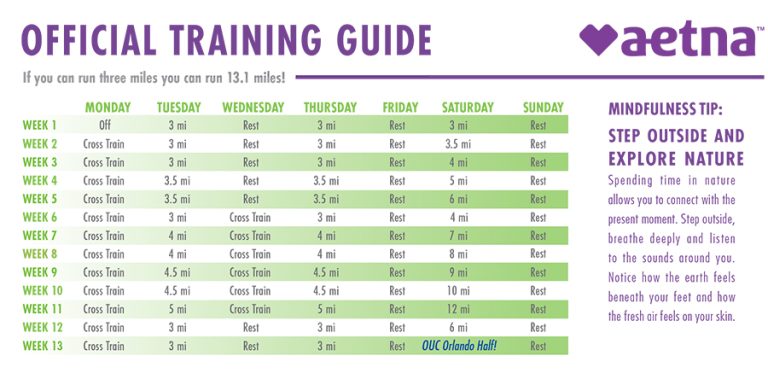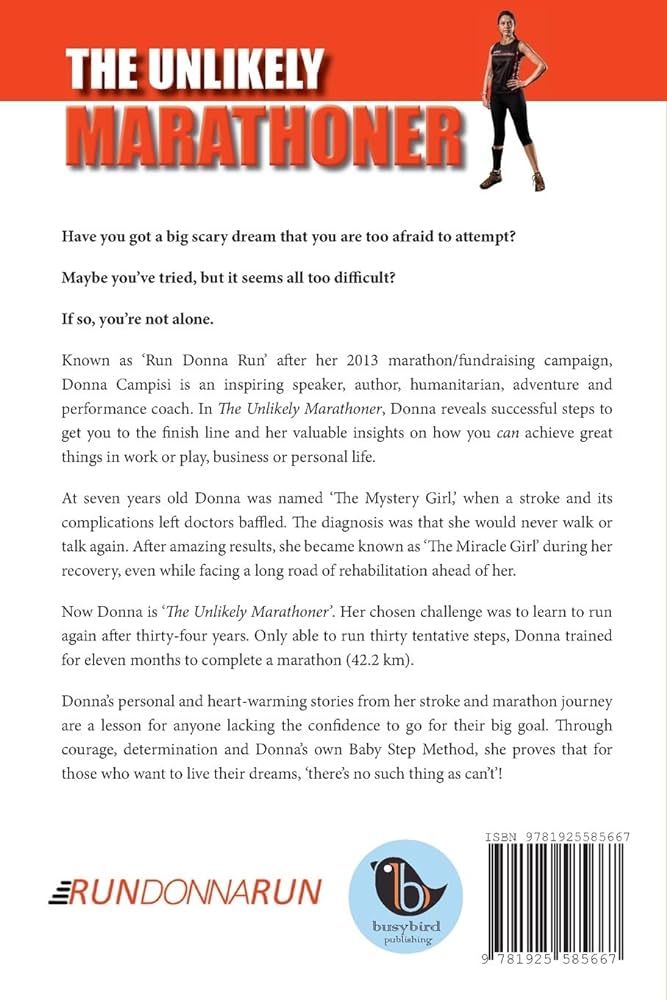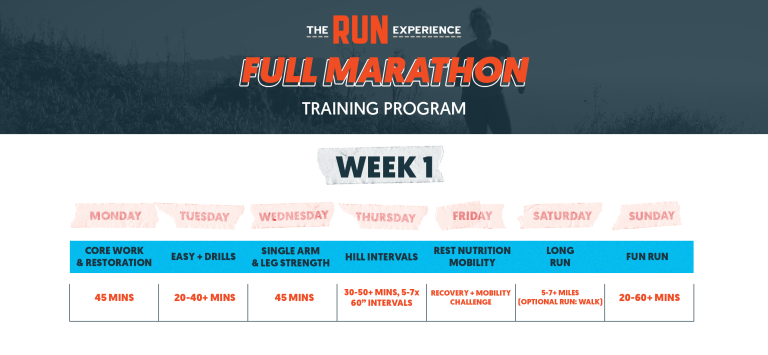Transitioning From Half To Full Marathon
Transitioning from a half to full marathon requires gradual mileage increase and proper training. Consistency is key to prevent injury and build endurance for the longer distance.
If you have successfully completed a half marathon and are looking to challenge yourself further by stepping up to a full marathon, you need to approach the transition with caution and respect for the distance. Making the jump from 13.
1 to 26. 2 miles is a significant leap that requires commitment and dedication to your training plan. By following a structured training schedule, focusing on proper nutrition, and listening to your body, you can successfully make the transition and achieve your goal of completing a full marathon. Let’s explore how you can smoothly transition from a half to full marathon and achieve your running goals.

Credit: www.runtothefinish.com
Choosing Your Full Marathon
Transitioning from a half marathon to a full marathon is a significant step that requires careful consideration. One of the most important decisions you’ll face is choosing the right full marathon for your next challenge. It’s essential to take into account various factors such as the event location, course difficulty, and your current fitness level in order to set realistic goals and have a successful marathon experience.
Researching Different Marathon Options
Before committing to a specific full marathon, it’s crucial to research different options available to you. Evaluate the course terrain, weather conditions, and elevation profiles to ensure it aligns with your preferences and abilities. Additionally, consider the event’s reputation, organization, and participant feedback to gain insight into the overall experience.
Considering Your Current Fitness Level
Assessing your current fitness level is vital when choosing a full marathon. Look at your half marathon performance and the training needed to bridge the gap from 13.1 miles to 26.2 miles. Evaluate your endurance, strength, and recovery capabilities to determine if you’re physically prepared for the increased distance. It’s also important to consult with a running coach or a fitness professional for personalized guidance.
Setting Realistic Goals
Setting realistic goals is essential for a successful full marathon. Consider factors such as your previous half marathon time, your training capacity, and your overall lifestyle commitments. By setting realistic goals, you’ll be able to tailor your training plan effectively and maximize your chances of crossing the finish line with a sense of accomplishment.
Training For A Full Marathon
Training for a Full Marathon requires dedication and a structured plan. Here we delve into the key aspects of preparing your body for this endurance challenge.
Gradually Increasing Mileage
Increase mileage slowly to prevent injuries and build endurance over time.
Incorporating Speed And Strength Training
Include speed workouts to improve your pace and strength training to prevent muscle fatigue.
Planning Rest Days And Recovery
Schedule rest days to allow your body to recover and prevent overtraining. Prioritize sleep for optimal recovery.
Nutrition And Hydration
Eating a balanced diet, staying properly hydrated, and fueling during long runs are crucial when transitioning from a half to a full marathon.
Eating A Balanced Diet
Ensure your meals include a mix of carbohydrates, protein, and healthy fats for sustained energy.
- Carbs like whole grains and fruits provide energy.
- Proteins from sources like lean meat aid in muscle recovery.
- Healthy fats from nuts and avocados support overall health.
Staying Properly Hydrated
Drink enough water throughout the day and replace lost fluids during and after your runs.
- Monitor hydration by checking urine color – aim for pale yellow.
- Electrolyte drinks can help replace lost minerals during longer runs.
Fueling During Long Runs
Consume carbohydrate-rich snacks during long runs to maintain energy levels.
- Energy gels provide quick fuel during the run.
- Bananas and nutrition bars are convenient options for refueling.

Credit: www.runningshoesguru.com
Mental Preparation
Transitioning from a half marathon to a full marathon requires not only physical endurance but also mental resilience. As you take on the challenge of doubling your race distance, it’s essential to prepare your mind for the journey ahead. Mental preparation plays a crucial role in determining your success. Here are some key strategies to help you develop the mental strength needed to conquer the full marathon distance.
Building Mental Resilience
Building mental resilience involves training your mind to cope with the physical and emotional demands of a full marathon. It’s important to embrace the discomfort and push through mental barriers. The process of gradually increasing your distance during training will also help build your mental resilience. By exposing yourself to longer runs, you will become better equipped to handle the mental challenges that arise during the full marathon.
Visualizing Success
Visualizing success can be a powerful tool in preparing for a full marathon. Take time to visualize yourself crossing the finish line, feeling strong and triumphant. This mental rehearsal can help reduce anxiety and instill confidence in your ability to complete the race. Visualizing success also allows you to mentally rehearse potential challenges and how you will overcome them, providing a sense of preparedness for the race day.
Developing A Positive Mindset
Developing a positive mindset is crucial for tackling the mental hurdles of a full marathon. Focus on embracing a can-do attitude and replacing negative thoughts with positive affirmations. Cultivate a strong sense of self-belief and resilience to push through tough moments. Adopting a positive mindset not only enhances your mental well-being but also contributes to improved performance during the race.
Race Day Strategies
As you prepare to transition from running half marathons to full marathons, one aspect that requires careful consideration is your race day strategies. In order to have a successful and enjoyable race day, it is essential to create a plan, pace yourself effectively, and cope with any nerves that may arise. In this blog post, we will explore these important factors in detail.
Creating A Race Day Plan
Having a race day plan in place helps you stay focused and organized, ensuring you make the most of this challenging endeavor. Consider the following aspects when creating your plan:
- Start by familiarizing yourself with the course map and aid station locations.
- Decide on your fueling strategy, including what and when you will consume fluids and nutrition during the race.
- Set realistic goals for yourself, taking into account your current level of fitness and previous race performances.
- Plan your pre-race routine, including what you will eat and drink, and when you will arrive at the race venue.
Pacing Yourself
Pacing is crucial in a marathon, as starting too fast can lead to exhaustion and a decline in performance later on. Follow these tips to pace yourself effectively:
- Begin the race at a comfortable pace, gradually increasing your speed as you settle into the rhythm.
- Use a GPS watch or running app to monitor your pace consistently and make adjustments if necessary.
- Divide the race into segments and focus on reaching specific milestones rather than getting overwhelmed by the total distance.
- Be mindful of your form and breathing, making adjustments as needed to maintain a steady pace.
Dealing With Race Day Nerves
It is completely normal to feel nervous on race day, but managing these nerves is essential for optimal performance. Here are some strategies to help you cope with race day nerves:
- Stick to your pre-race routine to maintain a sense of familiarity and confidence.
- Practice relaxation techniques such as deep breathing and visualization to calm your mind and body.
- Surround yourself with positive and supportive people who can encourage you and provide motivation.
- Focus on the process rather than the outcome, enjoying each step of the marathon journey.

Credit: www.pinterest.es
Frequently Asked Questions On Transitioning From Half To Full Marathon
Faq 1: How Should I Train To Transition From A Half Marathon To A Full Marathon?
To smoothly transition from a half marathon to a full marathon, gradually increase your mileage, incorporate speed and endurance training, and include proper rest days in your training plan.
Faq 2: What Should I Eat During My Full Marathon Training?
Focus on consuming a balanced diet that includes carbohydrates for energy, protein for muscle repair, and healthy fats. Stay hydrated and experiment with different foods during training to find what works best for you.
Faq 3: How Can I Prevent Injuries When Transitioning To A Full Marathon?
To prevent injuries, prioritize strength training to build muscle and improve overall stability. Listen to your body, avoid overtraining, and make sure to include rest days in your training plan. Proper warm-up and cool-down routines are also essential.
Conclusion
Transitioning from a half marathon to a full marathon is a significant achievement, requiring dedication and stamina. As you progress in your running journey, remember to set realistic goals and listen to your body during training. With determination and patience, you will conquer the challenge of completing a full marathon, realizing your potential as a runner.





